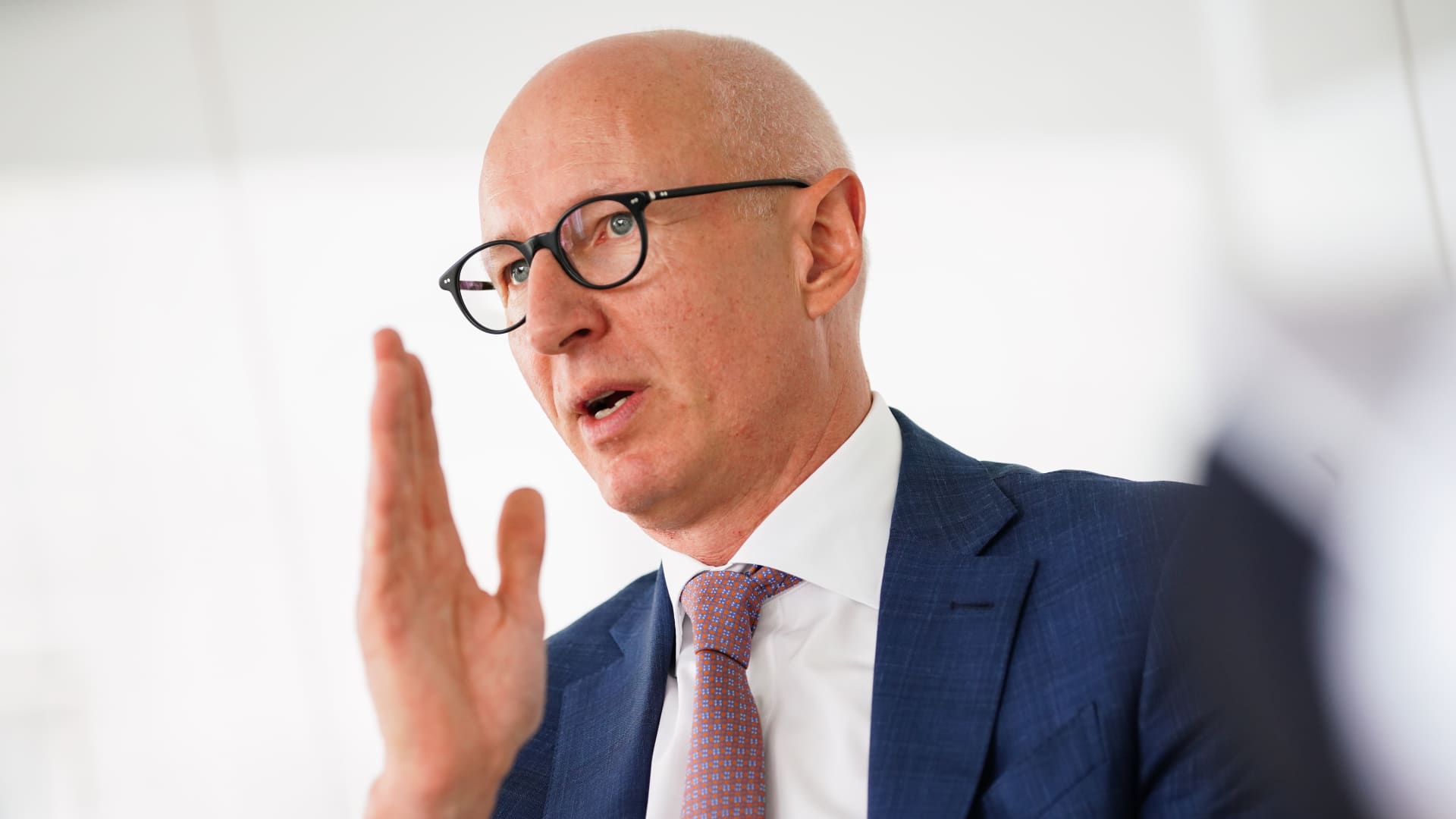Novo Nordisk CEO Lars Fruergaard Jørgensen on Friday said the company’s experimental weight loss pill, amycretin, could eventually become a best-in-class treatment for obesity.
The Danish drugmaker is racing to capitalize on the runaway success of its blockbuster weight loss drug Wegovy by developing a new generation of treatments for obesity, including more convenient and potentially cheaper pills.
His remarks came one day after Novo Nordisk impressed investors with early-stage trial data on amycretin. Patients on the pill lost about 13.1% of their weight after 12 weeks, Jørgensen said on CNBC’s “Money Movers.”
That surpasses the 6% weight loss seen in those who took Wegovy after the same time period. It also adds to the growing enthusiasm around the potential of weight loss pills.
Along with convenience for patients, pills could help alleviate some of the supply constraints plaguing weight loss injections. Wegovy, along with similar drugs, has soared in demand and slipped into intermittent shortages over the past year due to its ability to help patients shed significant weight over time.
“We believe in the future there’ll be different segments of anti-obesity treatments, with different patients having different preferences,” Jørgensen told CNBC. “Some will prefer an injectable and we really believe that once we can take a pill, it’s a very convenient offering.”
But those pills won’t join the market any time soon. A midstage trial on amycretin will begin in the second half of this year, with results expected in early 2026, the company said Thursday.
In a separate interview with Reuters on Friday, Novo Nordisk’s head of development Martin Holst Lange said the company is comfortable in being able to launch amycretin this decade.
Amycretin suppresses appetite by targeting the same gut hormone that Wegovy mimics, which is known as GLP-1. But amycretin also targets a pancreas hormone called amylin, which affects hunger.
U.S.-traded shares of Novo Nordisk rose as much as 8.3% on Thursday after the company released the data, extending the past year’s 68% gain. But the company’s stock fell 2% on Friday.
